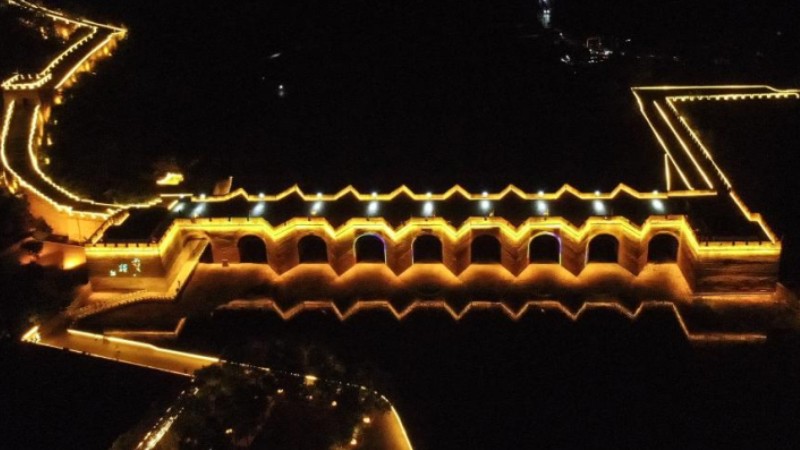Xi's vision can serve as pillar of multilateralism

A family takes photos against a backdrop of blooming sunflowers at the Olympic Forest Park in Beijing. [Photo/Xinhua]
Shared future 'follows aspirations of people from various countries', has strong 'appeal'
President Xi Jinping's vision of building a community with a shared future for mankind has "never been more significant than now" as the world is confronting multiple crises, and the vision can serve as a pillar of true multilateralism and rules-based global governance, officials and scholars said.
Ten years after it was first proposed by Xi during a speech in Moscow, Beijing has continued to enrich the content of his flagship vision — from the joint building of the Belt and Road Initiative to the Global Development Initiative, the Global Security Initiative and the Global Civilization Initiative.
Li Shulei, a member of the Political Bureau of the Communist Party of China Central Committee and head of the Publicity Department of the CPC Central Committee, told a forum on Wednesday that the vision, rooted in the 5,000-year-long Chinese civilization, has increasingly shown prominent values to the contemporary world.
With human society now facing unprecedented challenges and even greater deficits in development, security and governance, the vision "follows the aspirations of people of various countries and has showcased powerful influence and appeal", he said.
Beijing will continue to follow a path of peaceful development, actively take part in the reform and development of the global governance system, and offer new opportunities to the world with new achievements in its modernization, Li said.
The vision has been written into United Nations documents multiple times, and while advancing high-quality Belt and Road cooperation, has won active support from three quarters of countries in the world, according to the Chinese Foreign Ministry.
Stjepan Mesic, who served as Croatian president from 2000 to 2010, said that Xi's vision for the world is "filled with the belief that a better future for humanity can be achieved through a shared future based on equal partnership and dialogue, and by pursuing green and low-carbon development".
Mesic, who has met with Xi and read Xi's books, said he firmly believes that the Chinese president's domestic and international policies have always been committed to providing good and stable life for people in China and around the world.
He noted that Beijing has been working intensively for greater democracy in international relations, and China's grand strategy for building a community with a shared future for mankind is "in sharp contrast to the geopolitical strategies of other global powers".
"President Xi is the only global leader who has envisioned and proposed a kind of world order that gives advantage to the interests of humanity and global peace, and has upheld the ideal of a world in which different civilizations and social systems are equal," he said.
Essam Sharaf, a former prime minister of Egypt, said he believes the pillars of the Chinese path to modernization are cooperation, harmony, peace and development, and Beijing has presented these principles to the world through a set of global initiatives — the BRI, the GDI, the GSI and the GCI.
"If we seriously want to move from this very risky world, from a world of domination to a world of understanding, respect and cooperation, we should follow the guidelines of these four initiatives," Sharaf said.
The building of a community with a shared future for mankind can pave the way for law-based international relations, rules-based global governance and true multilateralism, he added.
Grzegorz Kolodko, a professor of economics and former deputy prime minister of Poland, described the BRI as a great initiative, saying that his country is definitely "very much in favor of looking for a shared future for mankind".
He called on countries involved in the BRI to strengthen the soft aspects of the initiative — intellectual and cultural relations, and bonds between different peoples. "In times of rising international tensions caused by the ill-advised Second Cold War, the soft aspects of the Belt and Road Initiative can be a breath of fresh air."
Martin Albrow, a fellow of the British Academy of Social Sciences, said the policy address delivered by the Chinese president at the United Nations Office at Geneva on building a community with a shared future for mankind "marked another step in the learning journey toward a diverse, open and inclusive world".
"China has been at the forefront in supporting global governance ever since resuming its rightful place in the United Nations, including the Security Council, in 1971," he said.
Photos
Related Stories
- Xiplomacy: Xi's remarks at SCO summit illustrate China's commitment to peace, development
- Xi replies to letter from overseas students at Nanjing Audit University
- Xi stresses practical SCO cooperation to speed up economic recovery
- President Xi has articulated the greatest common denominator of SCO
- Xi urges SCO to uphold solidarity
Copyright © 2023 People's Daily Online. All Rights Reserved.









